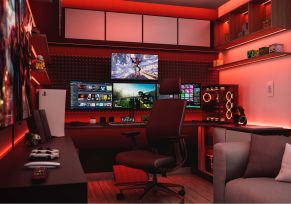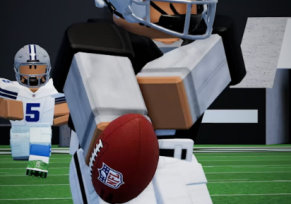This past weekend, Wargaming hosted the second annual World of Tanks Grand Finals in Warsaw, Poland. Thousands of people showed up to the free event to watch 12 of the finest seven-man teams from across the world battle it out for glory and prizes. Many showed up hours ahead of time to wait patiently in the calm (but slightly rainy) Polish morning.
It is a testament to the machine that is eSports that folks - men, women, many children and families - endured the long wait and iffy weather to come and be a part of something special. Much like regular sports, it would have been much easier - and with a better view - to simply stay home and watch the event via Twitch. Many did, of course, and at its height, the Wargaming.net Grand Finals was the fourth most watched event on the streaming site - with the top three slots all going to other eSports tournaments such as League of Legends.
The two-day event was a sight to behold. Technical difficulties and the Polish definition of 'air conditioning' could hardly quell the enthusiasm, which was just as high, if not higher, on day two. Anyone who stood amongst the masses, all eyes transfixed upon the gigantic mainstage screen, with 'casters giving a play-by-play in multiple languages, could not help but be impressed by where eSports have come.
"Last year we had 12,500 people joining in three days," said Mohamed Fadl, Wargaming's eSports coordinator. "Yesterday, we already topped this number in one day. We have to look for a bigger venue, a bigger system, a better system, something like this which gives people the quality they're coming for."
And what quality it was. In a stunning turn of events, the CIS/RU representative Hellraisers - formerly Unity - took the crown in decisive fashion against Chinese underdogs EL Gaming in 7-1 rout.
Players can progress through the Bronze, Silver and Gold leagues, the last of which is the fully professional members of the community that can go on to win the $150k pot that was on tap for Hellraisers this past weekend. Wargaming will shell out $750k per region per season for participating teams in the Gold League.
"The top teams will get the biggest chunk for salaried pay. it's normal, it's the prize money salary, they get the biggest piece, it goes down to lower and lower," Fadl commented, noting that this is a stepping stone towards more financial independence "First, we help them to understand, 'Hey we give you money. if you do this, create a brand around you, we give them connections, we give them guidelines, we help them make the first steps with partners, contracts, sponsorships that they don't get screwed over." These kids - and many are kids, make no mistake - aren't businessman, "they're gamers like you and me."
"They need support to build that first step."
Behind us, Kazna Kru just pulled off an amazing victory with a risky pincer move during one of the matches. Mr. Fadl jumped out of his seat in amazement. eSports may have a long road to legitimacy, but for one two day period, it was the most important thing in the world to a small group of fans.
Mark my words: one day, you will be able to flip on the television and see a video game match. Like baseball, it will become a part of the national conscious. And Wargaming will be there, helping to lead the charge.








